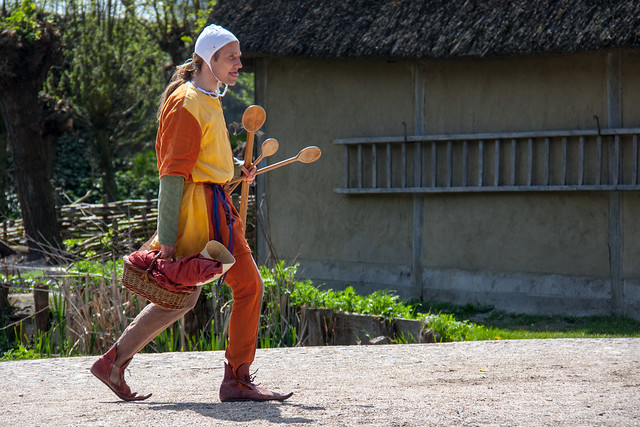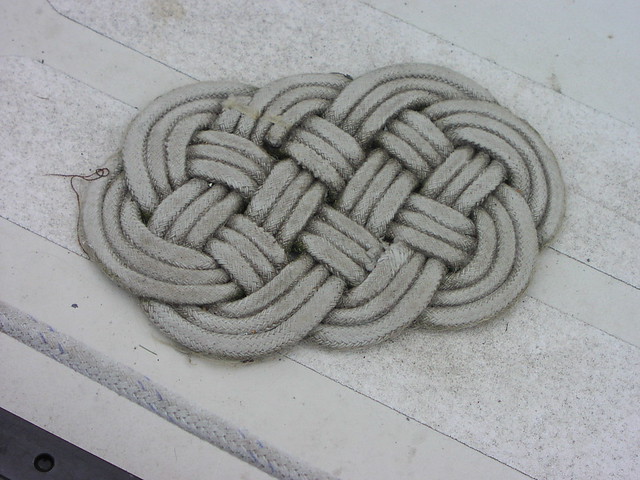Podcast: Play in new window | Download
Today we’re looking into the origins of the word quiet.
Quiet [ˈkwaɪ.ɪt / ˈkwaɪ.ət] means:
- making little or no noise or sound
- free or comparatively free of noise
- silent
- restrained in speech or manner
- free from disturbance or tumult; peaceful
It comes from the Middle English quiete (peace, rest, gentleness), from the Old French quiet(e) (tranquil, calm), from the Latin quiētus (at rest, quiet, peaceful), from quiēscō (I rest, sleep, repose), from quiēs (rest, repose, quiet) from the PIE *kʷyeh₁- (to rest; peace) [source].
English words from the same Latin root include acquiesce (to rest satisfied, to assent to), coy (bashful, shy, retiring), quit (to abandon, leave), requiem (a mass or piece of music to honour a dead person) and tranquil (calm, peaceful) [source].
The English word while comes from the same PIE root, via the Old English hwīl (while, period of time), the Proto-West Germanic *hwīlu (period of rest, pause, time, while), and the Proto-Germanic *hwīlō (time, while, pause) [source].
Other words from the same PIE root include wijl [ˈʋɛi̯l] (when, while), in Dutch, Weile [ˈvaɪ̯lə] (while), in German, hvile [ˈviːlə] (rest, repose, to rest) in Danish and Norwegian, chwila [ˈxfi.la] (moment, instant) in Polish and хвилина [xʋeˈɫɪnɐ] (minute) in Ukrainian [source].
Here’s a video I made of this information:
Video made with Doodly [afflilate link].
By the way, I wrote a new song this week called Quiet Please
I also write about words, etymology and other language-related topics on the Omniglot Blog, and I explore etymological connections between Celtic languages on the Celtiadur.
You can also listen to this podcast on: Apple Podcasts, Amazon Music, Stitcher, TuneIn, Podchaser, PlayerFM or podtail.
If you would like to support this podcast, you can make a donation via PayPal or Patreon, or contribute to Omniglot in other ways.











